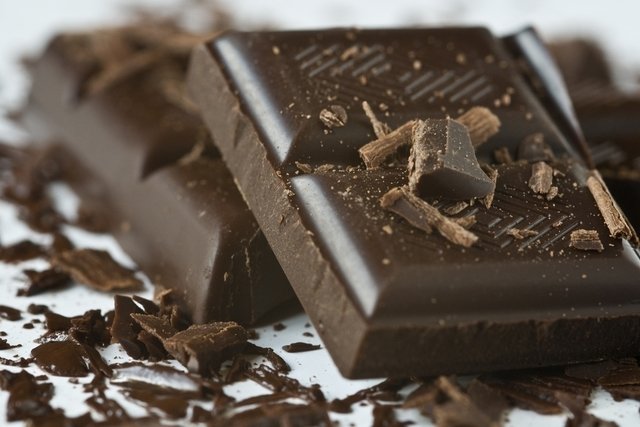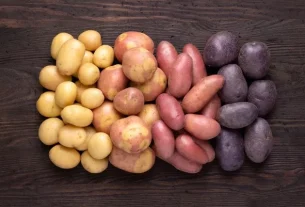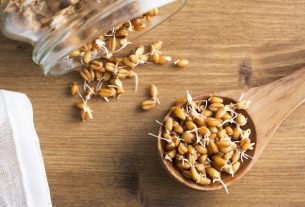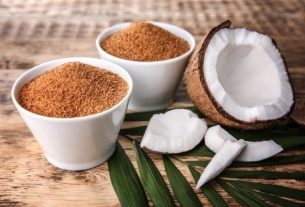To reduce and combat anxiety, it is important to prioritize the intake of foods rich in magnesium, omega-3, fiber, probiotics and tryptophan, such as bananas and dark chocolate, for example. This is because these nutrients help regulate intestinal flora and increase the production of serotonin, promoting relaxation and helping to control anxiety.
It is also recommended to reduce the consumption of foods rich in sugar and wheat flour, as they are associated with changes in blood glucose and serotonin production, which can worsen anxiety.
See with nutritionist Tatiana Zanin how to reduce anxiety about food:
Foods that improve anxiety
The main types of foods that help improve anxiety are:
1. Omega 3
Omega 3 is a good fat rich in EPA and DHA, fatty acids that improve brain function and reduce anxiety. Some studies have found that consuming a small amount of omega 3 could be related to some diseases, including depression and anxiety.
Therefore, it is important to consume foods rich in omega-3 such as tuna, salmon, sardines, flaxseed, chia, chestnuts, and avocado. In some cases, it may also be necessary to consume omega 3 supplements, which should be recommended by a doctor or nutritionist.
2. Magnesium
Some studies suggest that magnesium could help treat stress and anxiety, as they improve brain function, however more studies are needed to confirm this relationship.
This mineral is present in foods such as oats, bananas, spinach, pumpkin seeds, sesame, flaxseed and chia, and in nuts such as Brazil nuts, almonds and peanuts.
3. Tryptophan
Tryptophan is an amino acid that helps in the production of serotonin, which is an essential hormone to prevent anxiety, stress, depression and insomnia.
This amino acid can be found in foods such as meat, chicken, fish, eggs, bananas, cheese, cocoa, tofu, pineapple, salmon, dark chocolate and nuts in general, such as chestnuts, walnuts and almonds. Check out a complete list of foods rich in tryptophan.
4. B complex vitamins
B complex vitamins, especially B6, B12 and folic acid, are important regulators of the nervous system and participate in the production of serotonin. These vitamins can be found in whole grains such as brown rice, whole grain bread and oats, and in other foods such as bananas, spinach and other green vegetables.
5. Vitamin C and flavonoids
Vitamin C and flavonoids are antioxidants that reduce stress and anxiety, helping to control hormonal production. Its main foods are citrus fruits, such as oranges, pineapple and tangerines, chocolate and fresh vegetables.
6. Fibras
Consuming foods rich in fiber promotes intestinal health, as well as helping to regulate blood sugar levels and increase the feeling of satiety, making it an excellent option for people who have anxiety.
Some of the foods rich in fiber are fruits, vegetables, whole foods, legumes, among others.
7. Probiotics
Some scientific studies have shown that dysbiosis, which is an imbalance of the intestinal microbiota, and intestinal inflammation may be related to emotional changes, such as anxiety and depression. Therefore, the use of probiotics could help restore normal microbial balance and thus could have a potential effect on the treatment and prevention of anxiety and depression.
Probiotics can be ingested through fermented foods, such as natural yogurt, kefir, tempeh and kombucha, however they can also be consumed in the form of supplements that can be purchased at pharmacies.
Learn more about probiotics and their benefits:
Foods that make anxiety worse
Foods that should be avoided because they can worsen anxiety are:
- Sugar and sweets in general;
- Sugary drinkssuch as industrialized juices, soft drinks and energy drinks;
- White flourcakes, biscuits, savory snacks and white breads;
- Caffeine, present in coffee, mate tea, green tea and black tea;
- Alcoholic beverages;
- Refined cerealssuch as white rice and white pasta;
- Bad fatssuch as those found in sausages, sausages, ham, mortadella, turkey breast, stuffed biscuits, fast foods and frozen ready-to-eat food.
Anxiety can cause physical and psychological symptoms, such as headache, chest pain, lack of concentration and increased desire to eat, even if there is no hunger. Here’s how to recognize the symptoms of anxiety.
Anxiety menu
The following table provides an example of a 3-day menu to combat anxiety:
The quantities indicated on the menu vary according to the person’s age, sex, physical activity and general health. Therefore, the ideal is for a nutritionist to be consulted so that a complete assessment can be carried out and, thus, a nutritional plan adapted to the needs can be drawn up.

Sign up for our newsletter and stay up to date with exclusive news
that can transform your routine!
Warning: Undefined array key "title" in /home/storelat/public_html/wp-content/plugins/link-whisper-premium/templates/frontend/related-posts.php on line 12
Warning: Undefined array key "title_tag" in /home/storelat/public_html/wp-content/plugins/link-whisper-premium/templates/frontend/related-posts.php on line 13




